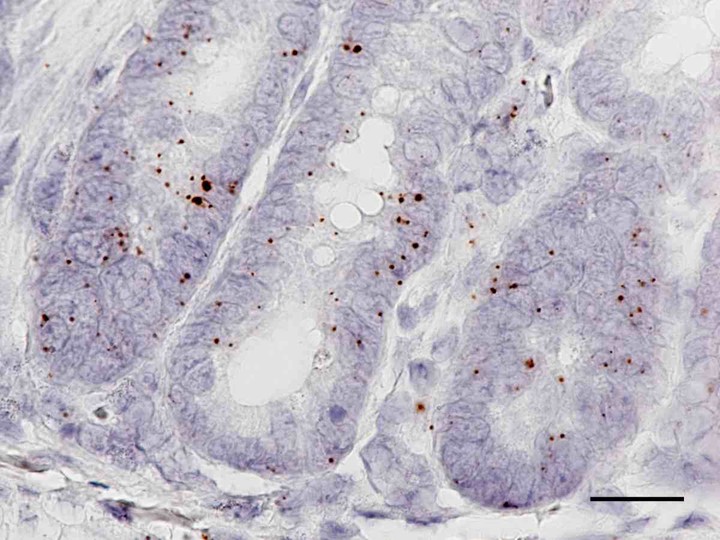Intestinal epithelial cell endoplasmic reticulum stress promotes MULT1 up-regulation and NKG2D-mediated inflammation
 © Blumberg lab, Brigham and Women's Hospital
© Blumberg lab, Brigham and Women's HospitalAbstract
Endoplasmic reticulum (ER) stress is commonly observed in intestinal epithelial cells (IECs) and can, if excessive, cause spontaneous intestinal inflammation as shown by mice with IEC-specific deletion of X-box–binding protein 1 (Xbp1), an unfolded protein response–related transcription factor. In this study, Xbp1 deletion in the epithelium (Xbp1ΔIEC) is shown to cause increased expression of natural killer group 2 member D (NKG2D) ligand (NKG2DL) mouse UL16-binding protein (ULBP)–like transcript 1 and its human orthologue cytomegalovirus ULBP via ER stress–related transcription factor C/EBP homology protein. Increased NKG2DL expression on mouse IECs is associated with increased numbers of intraepithelial NKG2D-expressing group 1 innate lymphoid cells (ILCs; NK cells or ILC1). Blockade of NKG2D suppresses cytolysis against ER-stressed epithelial cells in vitro and spontaneous enteritis in vivo. Pharmacological depletion of NK1.1+ cells also significantly improved enteritis, whereas enteritis was not ameliorated in Recombinase activating gene 1−/−;Xbp1ΔIEC mice. These experiments reveal innate immune sensing of ER stress in IECs as an important mechanism of intestinal inflammation.